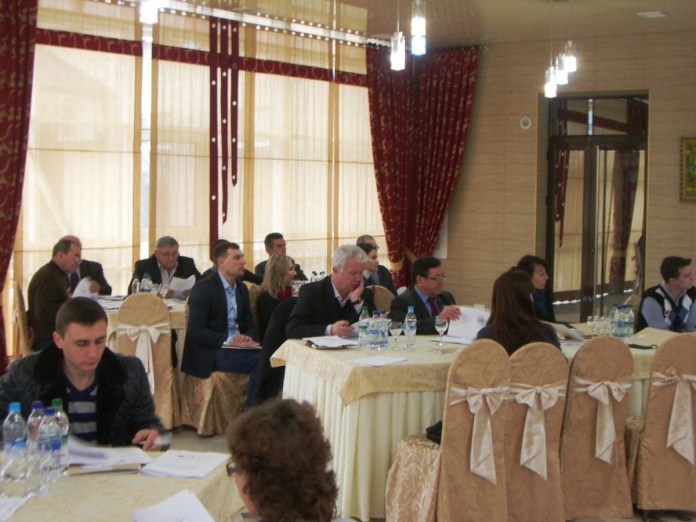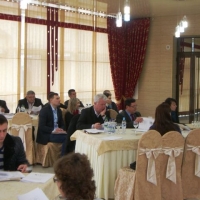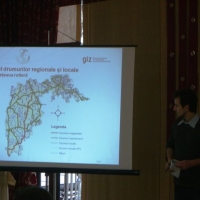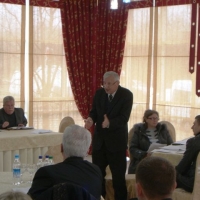The project “Modernization of local public services” (MLPS) was initiated in 2010 with the financial support from the German Development Cooperation through GIZ and implemented by GOPA consortium. The overall objective of the project is to improve local public services in villages and cities from the Republic of Moldova. The main beneficiary of the project is the Ministry of Regional Development and Construction (MRDC), Regional Development Agencies and Councils (RDAs & RDCs), the communities from the North, Center and South.
Intervention Area II “Regional Planning and Programming” of MLPS started in 2012 and supports the MRDC and RDAs in planning and programming in the following areas:
- water supply and sanitation,
- solid waste management,
- energy efficiency and
- regional and local roads (since 2014).
National Development Strategy “Moldova 2020” focuses on seven priorities for development, one of the leading priorities being to increase public investments in national and local road infrastructure, in order to reduce transportation costs and improve accessibility.
National Strategy for Regional Development 2013-2015 aims at developing and promoting integrated and participatory planning in regional development process. It involves realization of regional projects aimed at solving problems, especially linked to rehabilitation of physical infrastructure: water supply and sanitation, roads, etc..
Regional development strategies North, Center and South set among their basic priorities rehabilitation of physical infrastructure, including regional and local roads and bridges construction and rehabilitation, modernization and development of access routes and international connectivity.
The workshop was attended by Igor Malai, Deputy Head of the Directorate General for Regional Development and Eugen Girlea, consultant principal within the MRDC, experts of Regional Development Agency South, GIZ consultants and representatives of SA “Drumuri”, Rayon Councils and other participants.
The workshop contained three training sessions:
- The context of regional planning and programming;
- The current status of the Regional and Local Roads domain in the region;
- The approach on plans’ development in the Regional and Local Roads domain,
and finished with a session of questions – answers and determining actions to be taken by the members of the working groups.
We would like to reiterate, that workshop No.1 aimed at launching regional working groups activities and their involvement in the formulation of the main regional and local issues related to roads and accessibility. This workshop is part of a series of roundtables focused on strengthening and capacity building of regional and local planning and programming.









